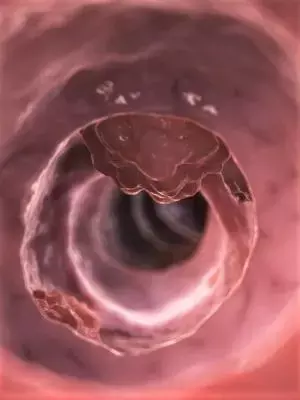- Home
- Medical news & Guidelines
- Anesthesiology
- Cardiology and CTVS
- Critical Care
- Dentistry
- Dermatology
- Diabetes and Endocrinology
- ENT
- Gastroenterology
- Medicine
- Nephrology
- Neurology
- Obstretics-Gynaecology
- Oncology
- Ophthalmology
- Orthopaedics
- Pediatrics-Neonatology
- Psychiatry
- Pulmonology
- Radiology
- Surgery
- Urology
- Laboratory Medicine
- Diet
- Nursing
- Paramedical
- Physiotherapy
- Health news
- Fact Check
- Bone Health Fact Check
- Brain Health Fact Check
- Cancer Related Fact Check
- Child Care Fact Check
- Dental and oral health fact check
- Diabetes and metabolic health fact check
- Diet and Nutrition Fact Check
- Eye and ENT Care Fact Check
- Fitness fact check
- Gut health fact check
- Heart health fact check
- Kidney health fact check
- Medical education fact check
- Men's health fact check
- Respiratory fact check
- Skin and hair care fact check
- Vaccine and Immunization fact check
- Women's health fact check
- AYUSH
- State News
- Andaman and Nicobar Islands
- Andhra Pradesh
- Arunachal Pradesh
- Assam
- Bihar
- Chandigarh
- Chattisgarh
- Dadra and Nagar Haveli
- Daman and Diu
- Delhi
- Goa
- Gujarat
- Haryana
- Himachal Pradesh
- Jammu & Kashmir
- Jharkhand
- Karnataka
- Kerala
- Ladakh
- Lakshadweep
- Madhya Pradesh
- Maharashtra
- Manipur
- Meghalaya
- Mizoram
- Nagaland
- Odisha
- Puducherry
- Punjab
- Rajasthan
- Sikkim
- Tamil Nadu
- Telangana
- Tripura
- Uttar Pradesh
- Uttrakhand
- West Bengal
- Medical Education
- Industry
T2D Might Increase Risk of Post Colonoscopy Colorectal Cancer: BMC

Post-colonoscopy colorectal cancer (PCCRC), a term endorsed by the World Endoscopy Organization, refers to colorectal cancers (CRCs) diagnosed after a negative colonoscopy with a prevalence of up to 8% of all colorectal cancers. A recent study suggests that patients with type 2 diabetes (T2D) have an increased relative risk of post-colonoscopy colorectal cancers compared with patients without T2D. The study findings were published in the journal BMJ Open Gastroenterology on December 24, 2021.
Studies have shown that patients with T2D are at particularly high risk of CRC. However, evidence regarding the impact of T2D on the risk of PCCRC is needed to improve the overall colonoscopy quality and to guide clinical decision making, particularly for planning surveillance colonoscopies for patients with T2D within CRC screening programmes. Therefore, Dr Frederikke Schønfeldt Troelsen and his team conducted a study to investigate whether patients with T2D are at increased risk of PCCRC compared with patients without T2D.
The researchers conducted a population-based cohort study of patients with T2D and without T2D undergoing colonoscopy in Denmark (1995–2015). Among 362263 patients undergoing colonoscopy, the researchers observed 250 PCCRCs among patients with T2D and 1658 PCCRCs among patients without T2D. They assessed the risk of PCCRC by calculating >6 to 36 months cumulative incidence proportions (CIPs) treating, death and colectomy as competing risks. They evaluated the HRs of PCCRC, comparing patients with T2D and non-T2D using Cox proportional-hazards regression analyses. According to the World Endoscopy Organization guidelines, they calculated PCCRC 3-year rates to estimate the proportions of T2D and non-T2D CRC patients experiencing PCCRC.
Key findings of the study:
- Upon analysis, the researchers found that the CIP after a first-time colonoscopy was 0.64% or T2D and 0.36% for patients without T2D.
- Compared with patients without T2D, they noted that those with T2D had elevated aHRs of PCCRC after the first colonoscopy (1.44) and second colonoscopy (1.18).
- They observed that the PCCRC rates at 3 years were 7.9% for patients with T2D vs 7.4% without T2D.
The authors concluded, "We found that patients with T2D had an increased HR of PCCRC compared with patients without T2D. These findings could indicate that impaired quality of bowel preparation for colonoscopy among patients with T2D may increase the risk of overlooked precancerous polyps, thereby increasing the risk of PCCRC."
For further information:
Medical Dialogues Bureau consists of a team of passionate medical/scientific writers, led by doctors and healthcare researchers. Our team efforts to bring you updated and timely news about the important happenings of the medical and healthcare sector. Our editorial team can be reached at editorial@medicaldialogues.in.
Dr Kamal Kant Kohli-MBBS, DTCD- a chest specialist with more than 30 years of practice and a flair for writing clinical articles, Dr Kamal Kant Kohli joined Medical Dialogues as a Chief Editor of Medical News. Besides writing articles, as an editor, he proofreads and verifies all the medical content published on Medical Dialogues including those coming from journals, studies,medical conferences,guidelines etc. Email: drkohli@medicaldialogues.in. Contact no. 011-43720751


